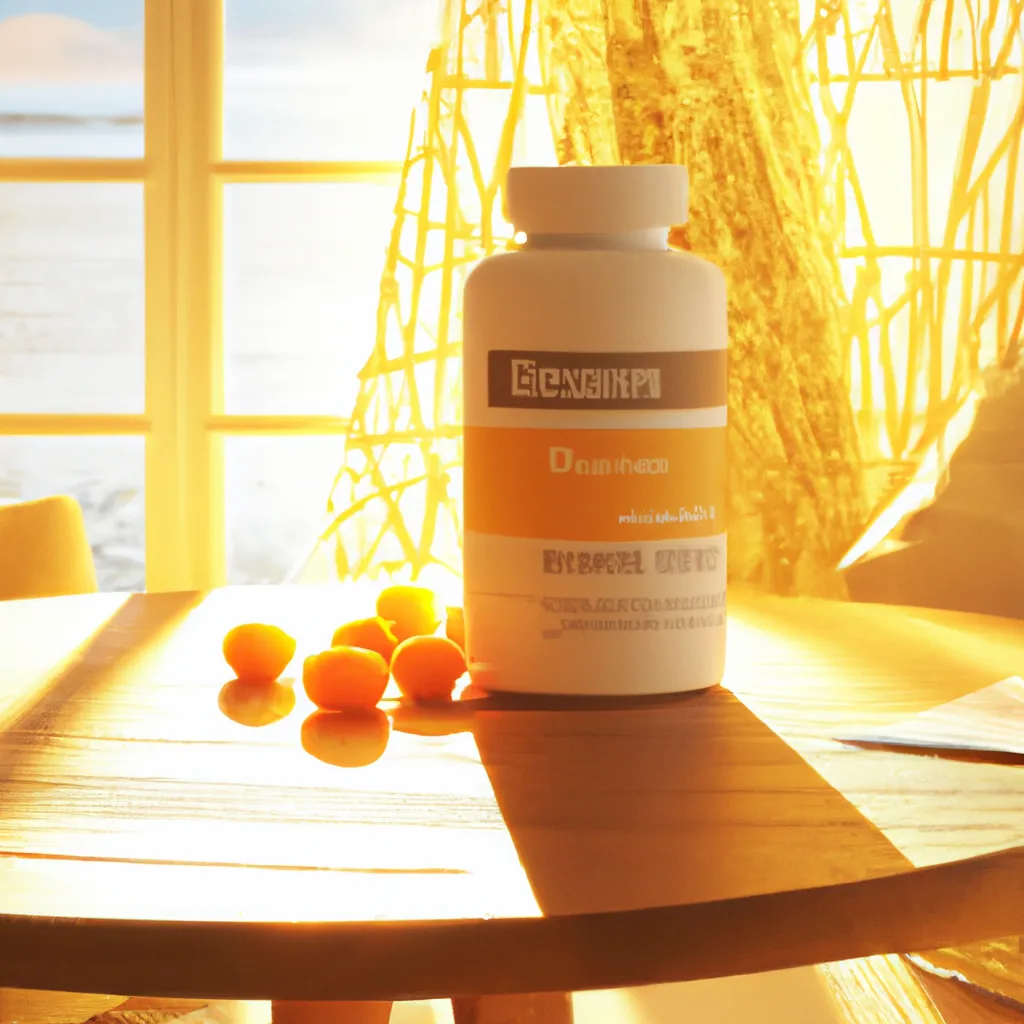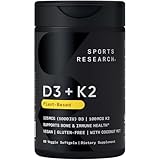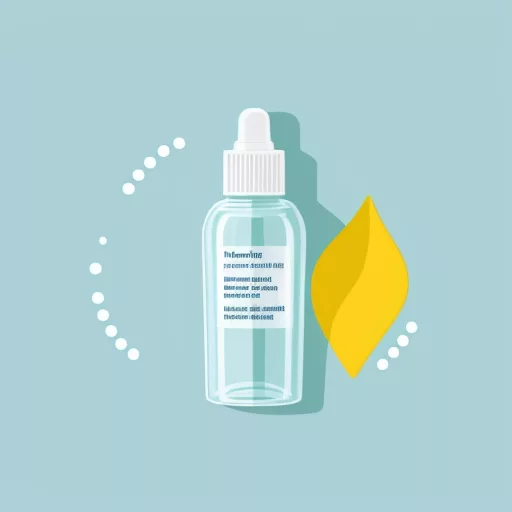Sunlight and Vitamin D: Understanding the Distinction for Better Health
Key Takeaways
- Sunlight and vitamin D: they’re not the same thing. Sunlight triggers intricate biological cascades and offers distinct health benefits that supplements cannot replicate on their own.
- Sunlight benefits cardiovascular health, immunity, and mood, underscoring the importance of safe, frequent outdoor time.
- Vitamin D supplements alone miss key biochemical messages and byproducts created in the presence of natural sunlight that are crucial for preventing several diseases.
- Safe sun exposure is a matter of understanding your skin type and adjusting your habits to your location and the changing seasons for optimal health results.
- The body’s natural defenses, such as melanin, can be nurtured through incremental sun exposure and the thoughtful use of sun-protection products with safe ingredients.
- Hydration and sunlight work together to fuel energy production, making a comprehensive approach to sunlight and water management crucial.
- IMMUNE SYSTEM SUPPORT: Aid your immune health with our Vitamin D 5000 IU supplement. Offering D3 Vitamin 5000 IU, formulated to help support your immune system
- IMMUNE AND BONE HEALTH SUPPORT: Our Vitamin D supplement provides vitamin D3 to aid bone, joint, breast, prostate, and immune health with 625% of the daily value per capsule
- EASY-TO-DIGEST FORMULA: Includes raw Lactobacillus probiotic and digestive enzymes to support digestion, making our D3 Vitamin supplement gentle on your stomach
- CLEAN AND CERTIFIED QUALITY: Our whole food vit D3 is Third-Party Certified Non-GMO, Gluten-Free, and Kosher
- VEGETARIAN FRIENDLY FORMULATION: It is made from raw, organic Vitamin D3 ingredients with no high heat or artificial additives, making it great for vegetarians seeking a clean supplement option
Last update on 2025-12-18 / Affiliate links / Images from Amazon Product Advertising API
Sunlight is energy from the sun, and vitamin D is a vitamin that the body manufactures when skin is exposed to UVB rays.
Certain foods and supplements are rich in vitamin D.
Not all sunlight is a source of vitamin D, and not all vitamin D is produced by the sun.
To untangle the truth, the following sections explain what distinguishes them and why both are relevant.
Why Sunlight Is Not Vitamin D
Sunlight exposure and vitamin D are not synonymous, though they function synergistically in human health.
Adequate sunlight exposure is a primary agent that initiates a cascade of activity throughout the organism.
Vitamin D is a hormone that performs distinct functions, highlighting the importance of both in maintaining health.
1. The Source
Sunlight energizes the Earth, fueling everything from vegetation to our physical well-being.
When sunlight touches your skin, it initiates chemical processes that help the body produce vitamin D3 through the action of UVB rays.
This is not an easy exchange—sunlight initiates the process, but the body completes it.
Vitamin D is obtained from food sources, such as fatty fish, egg yolks, and fortified foods, allowing individuals with limited sun exposure to still get some vitamin D.
2. The Hormone
Vitamin D isn’t a vitamin at all, but rather a hormone that regulates the utilization of calcium and phosphorus by the body.
This is critical for the development of robust bones and teeth, and it enables muscles to function correctly.
Sunlight causes the skin to begin producing vitamin D, but the body still needs to convert it in the liver and kidneys before it becomes effective.
Vitamin D influences how the immune system combats bacteria and could even play a role in establishing moods, demonstrating that it’s not just for bones.
Vitamin D from sunlight is contingent upon several factors, including skin tone, age, and location.
People with darker skin, the elderly, and individuals at high latitudes can all generate less vitamin D from the same sunlight.
Use supplements when sunlight fails.
3. The Spectrum
Sunlight consists of multiple wavelengths, including ultraviolet (UV), visible, and infrared.
Only UVB rays assist in making vitamin D in the skin, but visible light helps to wake people up and may also help set the sleep cycle. Infrared warms the skin and can assist blood circulation.
Too much UV can burn, but too little means leaving the beneficial sun gift on the table.
Of course, a balance allows us to reap the best from the sun without harm.
4. The Byproducts
When light touches skin, it’s not just cranking out vitamin D. It produces nitric oxide, which can reduce blood pressure, and other small molecules that may benefit heart health.
These byproducts cannot be generated just by taking vitamin D supplements, so there are some exclusive health advantages to sunlight.
Other chemical compounds from the sun may help the body combat disease. Each byproduct adds to health in its way.
5. The Regulation
The body has safeguards to prevent excessive vitamin D3 production from exposure to sunlight.
When it has received sufficient sun exposure, it halts further production.
Similarly, while excessive sunlight can cause burns or increase the risk of skin cancer, individuals must strike a balance between getting enough sun and protecting themselves from its harmful effects.
| Benefit | Sunlight Exposure | Vitamin D Supplements |
|---|---|---|
| Vitamin D synthesis | Yes | Yes |
| Nitric oxide release | Yes | No |
| Mood regulation | Yes | Limited |
| Bone health | Yes | Yes |
| Immune support | Yes | Yes |
| Skin damage risk | Yes (if too much) | No |
| Reliable dosing | No | Yes |
Sunlight’s Broader Health Effects
Sunlight exposure does so much more for the body than just create vitamin D; it plays a crucial role in vitamin D3 production and overall health.
Its influence extends beyond heart health, mood, and immune function, with many health benefits stemming from adequate sunlight exposure itself, rather than just the vitamin D produced in the skin.
- ORGANIC, WHOLE FOOD & PLANT-BASED D3 & K2 (MK7): Plant-D3 is Organic Vitamin D3 derived from sun-grown algae delivered in the optimal Cholecalciferol form. Our K2 is in MK7 is the superior all-Trans form.
- MAX STRENGTH, 5000 iu D3 & 120 mcg of K2: Each serving provides maximum strength, clinically validated doses.
- ENHANCED WITH PREBIOTIC SUPERFOOD COMPLEX:: Plant-D3 is optimized with a superfood complex that includes digestion enhancing prebiotics.
- VITAMIN K2 AS ALL-TRANS MK7 from MenaQ7 – 94% MORE EFFECTIVE: All-Trans K2 is the 100% BioActive form of K2 that activates K2-dependent enzymes and proteins. A majority of K2 in the market is a blend of “cis” form MK7, which is biologically inactive and cannot easily be absorbed. A majority of K2 on the market is less than 6% Trans MK7.
- USDA ORGANIC CERTIFIED, MADE IN USA, 3RD PARTY TESTED: Plant-D3 is organically certified by the USDA and exceeds all vegan standards. It is GMO-free, soy-free, gluten-free, preservative-free, additive-free. It is produced in a cGMP & organic certified facility in the USA and is 3rd party tested for over 100+ toxins or microbial.
Last update on 2025-12-18 / Affiliate links / Images from Amazon Product Advertising API
Cardiovascular Support
Sunlight aids the heart beyond vitamins or diet.
Sunlight induces the release of nitric oxide in the skin, a molecule that dilates blood vessels and reduces blood pressure.
This effect is revealed in studies, such as those where even brief sun exposure resulted in lower blood pressure.
For instance, those who are outside each day tend to have better heart markers than those who aren’t.
Scientists have even discovered direct connections between daily sun exposure and reduced incidences of cardiovascular disease.
In another study, sun exposure was associated with a lower risk of stroke and heart attack.
Sunlight’s effect on reducing the risk of heart disease is particularly potent in regions with extended, radiant days.
Inhabitants of high latitudes, above 50 degrees, can go without these advantages for months on end.
This disparity may partially account for the elevated incidence of heart disease in certain areas.
So, getting outside — even for short walks — is a relatively simple step for better vascular health.
Mood Enhancement
Sunlight lifts mood by raising serotonin, a brain chemical associated with feelings of happiness and well-being.
Even short winter days or extended periods indoors can deplete serotonin, resulting in a low mood and even seasonal affective disorder (SAD).
Studies indicate that even sitting by a window or taking a walk on a sunny day can contribute to an improved mood and increased energy.
Bright light therapy, which simulates sunlight, aids individuals suffering from depression, Parkinson’s disease, and sleep issues.
For instance, one study found that bright-light therapy improved sleep, mood, and motor function in individuals with Parkinson’s disease.
Students and young professionals can gain significant advantages from daily exposure, particularly during high-stress periods.
Just a few minutes outside in the sun can make a noticeable difference in your mental well-being.
Activities outside, such as walking, biking, or playing sports, serve as an additional mood enhancer and aid in fostering connection with others.
Immune Function
Sunlight is in synergy with the body’s immune system, enhancing its activity.
It helps the skin synthesize vitamin D and activates other pathways that aid in combating infections and reducing inflammation.
Key ways sunlight supports immune health include:
- Assists the body in producing vitamin D, which energizes immune cells.
- Promotes balanced immune responses, reducing the risk of autoimmune issues.
- Reduces the risk of infections by increasing the production of antimicrobial peptides in the skin.
- Enhances mood, which helps moderate stress and immune health.
Infections and certain chronic diseases are rarer in brighter places.
Consider, for instance, that breast cancer rates fall by more than 60% in individuals receiving adequate sun exposure in their teen years.
Pregnant women low in vitamin D have up to four times higher risk of Cesarean section.
Sunlight’s broad support for immune resilience makes it a key part of a healthy lifestyle.
The Supplement Paradox
Many assume that a vitamin D pill can substitute for time in the sun.
The science doesn’t quite support it.
Research indicates that vitamin D supplements don’t consistently reduce the risk of diseases such as cancer or heart disease any more effectively than a sugar pill.
In fact, approximately 90% of our vitamin D comes from the sun, not from what we eat or swallow.
Even supplemented, a typical western diet accounts for only a tiny fraction — perhaps 10% — of what we require.
So, sunlight and supplements aren’t easy substitutes.
Little to no sun exposure, typically only five to fifteen minutes a day, is generally sufficient to maintain vitamin D levels, but how we acquire this vitamin is essential.
A Different Pathway
The sun triggers a very different cascade in the skin than swallowing a pill.
Sunlight initiates a process that produces vitamin D in the skin.
Supplements, meanwhile, are metabolized in the gut and through the liver.
- Sunlight: Ultraviolet B (UVB) rays hit the skin, converting 7-dehydrocholesterol to pre-vitamin D3. The body then converts this to active vitamin D.
- Supplements: Vitamin D (D2 or D3) is typically taken orally. It’s digested, absorbed in the intestine, and requires activation in the liver and kidneys.
Understanding these routes is crucial.
Sunlight triggers more than just vitamin D production; it sends signals that impact mood and heart health.
Knowing these distinctions enables individuals to understand why sunlight does so much more than a supplement alone.
- D3 + K2 – TEAMWORK THAT MATTERS: Vitamins D3 and K2 work synergistically to support strong bones, immune health, and proper calcium metabolism.* D3 helps your body absorb calcium, while K2 (as MK-7) guides it to the bones where it belongs.* Together, they form a powerful combo for total-body wellness.*
- PLANT-BASED, VEGAN-FRIENDLY FORMULA: Our D3 + K2 supplement uses vegan D3 (cholecalciferol) sourced from lichen and K2 (MK-7) derived from fermented chickpeas, with coconut MCT oil added to support optimal nutrient absorption.* No animal ingredients, ever—just effective science-backed support.*
- ONCE-A-DAY IMMUNE & BONE SUPPORT: Each easy-to-swallow softgel delivers 125 mcg (5000 IU) of vegan D3 and 100 mcg of K2 (MK-7)—the most bioavailable form of K2. Just one softgel per day helps promote bone health, immune support, and cardiovascular health in both women and men.*
- CERTIFIED CLEAN & QUALITY TESTED: Our vitamin D3 and K2 formula is Vegan Certified, Non-GMO Project Verified, and free of carrageenan, gluten, soy, and artificial fillers. Each batch is 3rd-party tested and manufactured in the USA in a cGMP-compliant facility—because your health deserves the highest standard.
- NUTRITION YOU CAN TRUST: At Sports Research, we craft supplements with ingredients you recognize and results you can feel. Our D3 + K2 softgels deliver plant-based purity, clinical strength, and real transparency, helping you live brighter every day—naturally.*
Last update on 2025-12-18 / Affiliate links / Images from Amazon Product Advertising API
The Missing Signals
Supplements do not provide the body with all the cues that sunlight does.
Sunlight triggers a series of simultaneous events, including the production of nitric oxide, which promotes good circulation and cardiovascular health.
This explains why a few studies report that sunlight has cardiovascular benefits that aren’t due to vitamin D.
The body responds to natural sunlight in ways we are only beginning to understand.
For instance, the increase in melanoma appears to parallel the increase in sunscreen use, suggesting that it may not be optimal to block all sun.
Sunlight can help set our circadian rhythms and mood.
So, it’s about getting just the right amount of sun without burning.
Mindful sun exposure provides the body with these additional cues that supplements cannot.
Potential for Imbalance
Depending solely on supplements can pull the weight in the wrong direction.
Vitamin D can cause issues such as high calcium levels, which can damage the kidneys or the heart.
The right diet, sunlight, and, if necessary, a little supplement work best in harmony.
A whole-health approach means not bypassing sun time or relying solely on a pill.
Rethinking Sun Protection

The mindset surrounding sun and skin is changing.
Most people still believe that any sun exposure is harmful and that sunscreen is always necessary.
New research reveals that excessive sun protection can lead to health issues, including vitamin D deficiency.
More than half the global population is now vulnerable, as is Australia, where, despite its high skin cancer rates, over 40% of people have low vitamin D.
That’s what makes it essential to rethink sun protection in a holistic fashion.
Natural Defenses
Skin already has natural protection mechanisms against sunlight.
Melanin is a pigment in the skin that actually helps block some of the harmful rays from the sun.
Individuals with darker skin have higher levels of melanin and typically receive greater natural protection.
They, too, may require more sun exposure to produce sufficient vitamin D.
Supporting the body’s natural defenses can be simple:
- Spend short periods outdoors without sunscreen at first.
- Dress lightly, covering the skin yet allowing the sun to permeate.
- Include antioxidant-rich foods, such as berries and leafy greens, in your diet.
- Avoid heavy sun exposure during peak UV hours.
- Allow your skin to adjust gradually to increased sun exposure over several weeks.
Allowing the body to develop its defenses is critical, particularly among young people.
Getting out there for little bursts builds skin resistance and decreases future burn risk.
Slow exposure to the sun helps shape the skin, allowing it to better tolerate the sun without risking injury.
Sunscreen’s Role
We often think of sunscreen as the primary defense against skin cancer.
Relying solely on sunscreen can be misleading. It can even inhibit the body’s production of vitamin D.
Many studies now recommend a cautious approach: use sunscreen when needed, but avoid excessive coverage.
Sunscreen can prevent burns and reduce the risk of cancer, but it also absorbs UVB rays, which are necessary for vitamin D synthesis.
Understanding how sunscreen complements the skin’s natural defenses helps individuals determine the optimal timing and application method.
Go for sunscreen on long days outside, but short, unprotected sun time helps keep vitamin D up.
Toxic Ingredients
Certain sunscreens contain chemicals such as oxybenzone and octinoxate.
They can be absorbed into the body and potentially impact hormones.
Additional components can be irritating or allergenic.
People are becoming increasingly concerned about the impact of these chemicals on our health and the environment.
Safer options are mineral sunscreens with zinc oxide or titanium dioxide.
Label-reading and selecting products without dangerous ingredients is a good start.
Natural shade, hats, and clothing can also help.
- Megadose D3 Liquid Drops: Support immunity, bone strength, normal muscle function with our Megadose D3 Drops. D3, or cholecalciferol, is the same kind of vitamin D that your body naturally produces, here in vegan, easy-to-take drop form! For those who are interested in megadosing vitamin D, this product contains 100 mcg (4000 IU) vitamin D per serving.
- Multiple Benefits: Very few foods naturally contain vitamin D, and most all D3 supplements are sourced from lanolin — the fat of lamb’s wool. These liquid drops are made from non-GMO, vegan lichen. Vitamin D3, or cholecalciferol, aids the body in absorbing phosphorus and calcium, supporting immune functions and bone health.
- Vegan Formula: Per Serving (1 ML (50 Drops)): Vitamin D3 as Cholecalciferol: 100 mcg (4000 IU). Other Ingredients: Organic Medium Chain Triglyceride (MCT) Oil, Organic Natural Pineapple Flavor. All ingredients are vegan and Non-GMO.
- Easy-to-Take Liquid Drops: This product was formulated for ages 14+. Shake gently before use. Once daily, take up to 1 mL (50 drops) directly by mouth, or dose as recommended by a physician or healthcare professional. Store in a cool, dry place. Shake gently before using.
- For Most Lifestyles: MaryRuth’s Vitamin D Drops are USDA Organic, Non-GMO, Vegan, Dairy Free, Gluten Free, Soy Free, Made in a GMP Facility. Clean Label Project Certified. B Corp Certified.
Last update on 2025-12-18 / Affiliate links / Images from Amazon Product Advertising API
The Water and Energy Connection
Sunshine does more than just help the body synthesize vitamin D.
It operates with water in the body in ways relevant to energy and health.
Sunlight transforms the water around our cells, powers our circulation, and makes us feel more vibrant and awake.
Knowing these connections provides a more complete understanding of why both sun exposure and proper hydration are essential for all of us, not just for vitamin D synthesis.
Exclusion Zone Water
EZ water develops adjacent to surfaces within the body, such as blood vessel walls.
EZ water isn’t like regular water; it somehow aligns itself, expelling particles and toxins.
This layer keeps arteries slick and functioning correctly.
Sunlight, particularly its infrared portion, energizes EZ water.
This boost causes the exclusion zone to expand and intensify.
With more sun, EZ water is capable of performing its job more effectively, providing a protective sheath and support for blood vessel walls.
For instance, when you’re out in the sun and well hydrated, your body’s blood flow will be enhanced as exclusion zones help maintain the flow of blood cells and shield the lining from injury.
Sunlight and water are essential for cell function, and when either is lacking, we tend to feel tired or sluggish.
Knowing these advantages means scheduling both proper hydration and sun safety.
A Human Battery
Our body functions somewhat like a battery, capturing and utilizing energy from the sun. EZ water is a key component.
The rays of the sun on the skin provide the power that enables EZ water to expand and hold a charge.
These charged cells can be used to do work, much like charging a phone.
Sunlight-driven EZ water maintains energy levels throughout the day.
It explains, for example, why we tend to feel more alert and invigorated after time outside.
When the sun is low, like it is in the far North come winter, energy and mood can drop.
Individuals in these areas may not produce vitamin D for months, and they often need to seek alternative methods to maintain their energy, such as through a balanced diet or safe supplementation.
To get the body “charged up,” seek out consistent sunlight, be sure to hydrate, and utilize outdoor breaks as an opportunity to power up both water and energy.
Infrared’s Power
Infrared light, which is the part of sunlight that humans perceive as warmth, does more than warm the skin; it plays a significant role in vitamin D3 production.
This essential process is vital for maintaining adequate sunlight exposure, which can lead to many health benefits, including improved tissue regeneration and increased circulation.
When infrared light strikes water in the body, it facilitates the expansion of the EZ layer and enables the layer to perform its work more efficiently.
For those who are sun-deprived, using indoor infrared lamps or spending time by a window can be beneficial, but natural sunlight is preferable for a healthy tan.
Mindful sun time, combined with hydration, provides the most advantage for energy and cell health, helping to mitigate the risks associated with inadequate sun exposure.
Overall, ensuring sufficient sun exposure is crucial for optimizing health, as it helps cells in expelling toxins and supports various metabolic markers essential for well-being.
How to Get Sunlight Intelligently
Sunlight is critical for health, but it must be approached intelligently.
Safe and smart sun exposure is about balance, ensuring adequate sunlight exposure to fuel vitamin D production and overall well-being, while avoiding excessive sun exposure.
Factors such as your skin type, location, time of day, and your body’s signals all play a role in helping you achieve a healthy tan while minimizing concerns like sunburn or chronic damage.
Know Your Skin
Your skin type significantly influences your sun requirements, particularly in achieving adequate sunlight exposure.
Lighter skin burns faster and produces vitamin D3 more rapidly, while darker skin doesn’t burn as easily but could require longer sunlight exposure to synthesize the same amount of vitamin D3.
This is due to melanin, which provides skin color and can prevent a portion of UVB rays essential for vitamin D3 production.
If you’re fair-skinned, shorter exposures to the sun, especially during midday, may suffice for a healthy tan.
Conversely, individuals with darker skin may require more time in the sun, but it’s crucial to avoid sunburn.
Small steps are genius; gradually increasing your time outside allows your skin to adjust, thereby minimizing the risk of sunburn and damage.
Taking it slow while seeking shade or protective clothing as needed keeps your skin very happy.
Remember, it’s not a one-size-fits-all approach when it comes to sun exposure advice.
- ORGANIC, WHOLE FOOD & PLANT-BASED D3 & K2 (MK7): Plant-D3 is Organic Vitamin D3 derived from sun-grown algae delivered in the optimal Cholecalciferol form. Our K2 is in MK7 is the superior all-Trans form.
- MAX STRENGTH, 5000 iu D3 & 120 mcg of K2: Each serving provides maximum strength, clinically validated doses.
- ENHANCED WITH PREBIOTIC SUPERFOOD COMPLEX:: Plant-D3 is optimized with a superfood complex that includes digestion enhancing prebiotics.
- VITAMIN K2 AS ALL-TRANS MK7 from MenaQ7 – 94% MORE EFFECTIVE: All-Trans K2 is the 100% BioActive form of K2 that activates K2-dependent enzymes and proteins. A majority of K2 in the market is a blend of “cis” form MK7, which is biologically inactive and cannot easily be absorbed. A majority of K2 on the market is less than 6% Trans MK7.
- USDA ORGANIC CERTIFIED, MADE IN USA, 3RD PARTY TESTED: Plant-D3 is organically certified by the USDA and exceeds all vegan standards. It is GMO-free, soy-free, gluten-free, preservative-free, additive-free. It is produced in a cGMP & organic certified facility in the USA and is 3rd party tested for over 100+ toxins or microbial.
Last update on 2025-12-18 / Affiliate links / Images from Amazon Product Advertising API
Understand Your Location
Where you live determines your sun exposure and its intensity.
If you’re away from the equator or at high elevations, sunlight can be heightened or diminished for months on end.
For example, at latitudes north or south of 35°, such as Boston at 42° North, you may not generate any vitamin D3 from November to February.
By comparison, at high altitudes, you could observe a massive increase in D3 output—up to 5x—as a result of increased UVB ray intensity.
Seasons count, as well. Sun exposure is less effective in winter.
Pay attention to the local UV index and modify your habits accordingly.
If you’re in a city with long, dark winters, think vitamin D from food or supplements.
In sunny locations, less time might be better.
Listen to Your Body
Notice what your body is telling you when you’re outside.
If you feel tingling, see redness, or experience any discomfort, it’s time to find shade or go inside.
Sunburn means you’ve overdone it and have to scale back next time.
Dizziness or headaches can be symptoms of sun overload.
| Sign of Sun Exposure | What It Means | What to Do |
|---|---|---|
| Redness | Rest, hydrate,and cool down | Get out of the sun |
| Tingling | Skin damage starting | Cover up or move indoors |
| Dizziness | Overheating or dehydration | Rest, hydrate, and cool down |
| Peeling | Past overexposure | Moisturize, avoid more sun |
Tune your time outside to your healthy needs. For individuals with sensitive skin or certain conditions, even a slight sun exposure can be too much.
Our Conclusion
Sunlight does so much more than support your body in making vitamin D.
Your skin, your eyes, and even your mood transform with time in the sun.
A noon walk can help your mind, support your bones, and aid your sleep.
Sunlight acts in ways a pill can’t imitate.
Too much sun can be painful, but adopting smart sun habits helps keep you safe and healthy.
So, try to get outside for a few minutes every day, seek shade when the sun feels intense, and apply sunscreen if needed.
Remain inquisitive about the ways light influences your wellbeing. Want to read more on sunlight and health?
See guides or chat with a health professional for advice tailored to your lifestyle.
- IMMUNE, MOOD, BONE & MUSCLE SUPPORT*: Vitamin D supports healthy bones, muscle function, and a strong immune system.*
- NATURALLY-SOURCED, NON-GMO: These Vitamin D3 immune support and bone health supplements* are formulated with a naturally-sourced vitamin D3 ingredient, and are gluten-free and non-GMO. Packaging may vary due to high demand, same great product and ingredients.
- IN ORGANIC COLD-PRESSED OLIVE OIL: NatureWise Vitamin D3 is formulated with organic, cold-pressed olive oil that doesn’t use heat or hexanes, to enhance the absorption of vitamin D3.*
- CONTENTS CERTIFIED NSF: This supplement is NSF-contents certified, which means its contents are thoroughly tested for accuracy and purity. Ingredients are also analyzed for this certification to confirm they match label contents.
- USA MANUFACTURED, 3RD PARTY TESTED: All NatureWise supplements are proudly manufactured the USA in facilities that comply to the strictest cGMP standards and undergo rigorous testing by third party labs to ensure the highest quality and purity.
Last update on 2025-12-18 / Affiliate links / Images from Amazon Product Advertising API
Frequently Asked Questions
Is sunlight the same as vitamin D?
No, sunlight exposure and vitamin D are not the same thing. Adequate sunlight exposure enables your skin to produce vitamin D, but sunlight doesn’t contain vitamin D.
Can you get enough vitamin D from sunlight alone?
Exposure to the sun can help your body produce adequate vitamin D, which is essential for vitamin D3 production, depending on your geographical location and skin pigmentation.
Are vitamin D supplements a good substitute for sunlight?
Supplements can help increase vitamin D levels, but they don’t provide the numerous health benefits of adequate sunlight exposure, such as mood support and regulating sleep cycles.
Does using sunscreen stop vitamin D production?
Sunscreen may decrease the vitamin D3 production that your skin generates, but it’s critical for preventing dangerous UV radiation. Adequate sunlight exposure, even short and unprotected, might suffice for vitamin D.
Does sunlight have health benefits beyond vitamin D?
Yes, adequate sunlight exposure supports your body’s circadian rhythm, boosts mood, and may help regulate blood pressure, beyond just vitamin D production.
What is the safest way to get enough sunlight?
Shoot for brief, consistent bursts of sunlight exposure outside, preferably early in the morning or late afternoon, while protecting your skin after a few minutes.
Why is vitamin D essential for health?
Vitamin D aids in calcium absorption, supports immune function, and is essential for good health, especially with adequate sunlight exposure.












